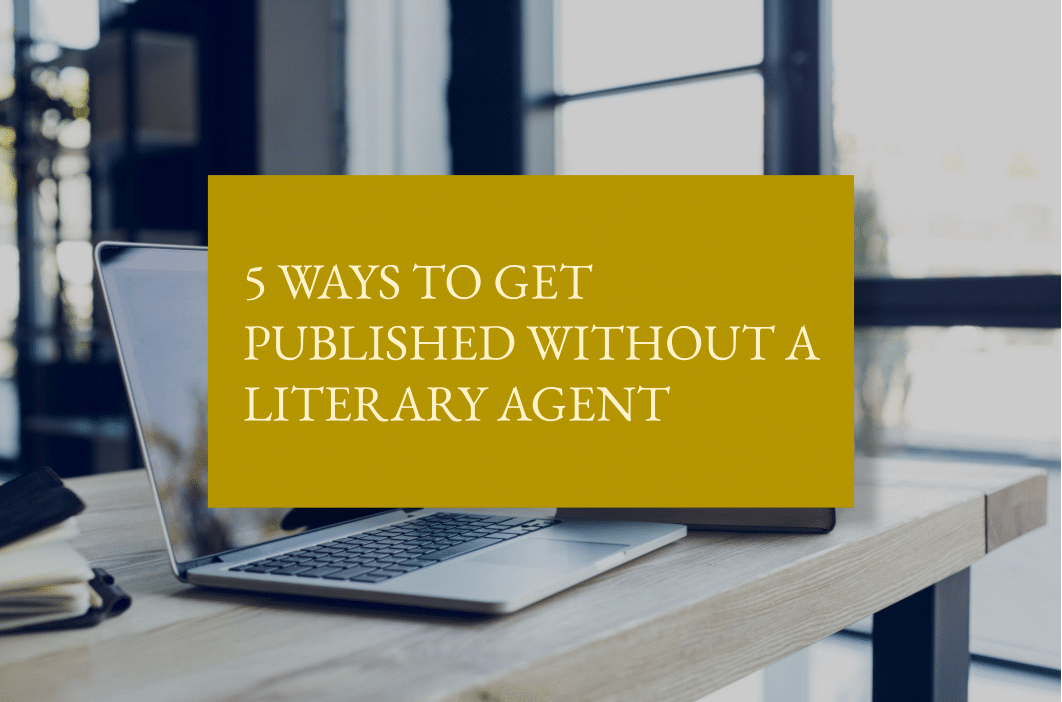
If you’re nearing the end of a major writing project like a novel, memoir, or collection of short stories, you’re probably starting to think about publishing options. Many resources will tell you that the best (only?) way to get your book on the shelves is to convince a literary agent to go to bat for you. But is this really true?
The traditional “gates” of publishing have undergone a shift in the past twenty-or-so years, and now there are more roads available to aspiring authors than ever. Read on for everything you need to know.
Why do many authors prefer to work with literary agents?
They do this because there are so many people wanting to get a book published that editors just don’t have time to review every submission. Because you first have to be good enough to get a literary agent to represent you, they know that the submissions they receive from agents have already passed that minimum level of polish.
Another reason is that the publishing industry can be a little overwhelming if you’re traversing it for the first time. Even when working with honest publishers (and there are more than a few dishonest ones out there), you’ll need to deal with rights and contracts and legal jargon. Literary agents are experts at navigating these waters so you don’t have to.
The downside of working with a literary agent
So now that we know the positive elements of working with a literary agent, are there any negatives? The biggest downside to submitting to an agent is that it can take a lot of time. You might spend up to a year sending your manuscript out to potential agents and then waiting up to another year to hear back (many, many rejections with one or two acceptances amidst the detritus).
Then, once you land your dream agent, they then have to undergo the whole process all over again as they send your book around to editors. So you’re basically going through the submission trenches twice.
Sometimes, of course, things happen a lot faster. But because you won’t know what the process will be like until you’re knee-deep in it, some writers like to bypass the middleman and go straight to the money.
Join our email list for authors
Join our email list for content and opportunities to help you develop your writing, promote your books, and build your author business.
How to get published without an agent
Target indie presses
Remember when we mentioned the “Big Five” publishers? Well, there are countless smaller, independent publishers that take submissions directly from authors! These publishers don’t have as expansive a budget as larger publishers, but they’re devoted to championing the authors they choose to work with.
Indie publishers can range from tiny startups to medium sized companies with a team of a few dozen. AuthorsPublish is a good place to find detailed reviews of indie presses, and Scribophile’s open calls newsletter often includes indie presses looking for full-length novels.
Enter writing contests
Sometimes, medium and larger publishers will hold writing contests that award promising writers a publication deal. These contests usually have entry fees, but may be the only time when larger publishers open to unagented submissions. You can find a few of them here.
Watch for open calls
Once in a while larger publishers may open to unagented submissions for brief windows of time. This is more common for writers of minority identities (authors of colour, LGBTQ+ authors, those with disabilities or working class backgrounds, etc), but can also come up for a general audience.
The best place to find these is on social media and newsletter mailing lists. Even if you’re not much of a social media person, it’s worth making an empty throwaway account just so you can keep up with these. Take a look on your bookshelf at the books that are similar to what you want to write, and see who published them (their name and logo should be at the bottom of the spine). Then, make a point to follow these specific publishers and keep your eye out for submission opportunities.
Attend pitch events
There are also events such as writers’ conferences and industry panels that will allow you to directly pitch your work to publishers. For example, the Irish Novel Fair (which is open to international writers, not just Irish ones) gives aspiring novelists an opportunity to directly connect with publishers in person and pitch their work.
See if you can find any similar events in your area. This is another area where following your favourite publishers on social media can be helpful; they’ll often announce when they’re planning to attend certain literary events, and then you can make sure you’re there at the front of the line.
Self publish
Finally, there’s the timeless option to not go through a publisher at all. Self publishing is a growing industry that’s become much more respected than it was a few decades ago (for instance, Writer’s Digest has recently launched an award for self-published authors).
Self publishing means you don’t need anyone to say “Yes” to you, and you don’t have to sign over any creative control in regards to your title, cover, formatting, or marketing. The downside, of course, is that you’ll need to learn how to do all this on your own instead of having an experienced team there to take care of it. It’s a personal choice on whether this trade-off aligns with your priorities as an author.
So whether you plan to pursue publication through a literary agent, independent publisher, pitch event, or by forging your own path, know that the “rules” of traditional publishing have broken down. Now, anything is possible. Good luck!
Fija Callaghan is an author, poet, and unapologetic daydreamer. Her work has been shortlisted and longlisted for a number of short story prizes, and you can find her writing in publications like Gingerbread House, Crow & Cross Keys, Corvid Queen, and Mythic Magazine. When not writing or helping other writers get the best out of their work, she can be found haunting her local bookshops or watching the tide come in.
Join our email list for authors
Join our email list for content and opportunities to help you develop your writing, promote your books, and build your author business.
